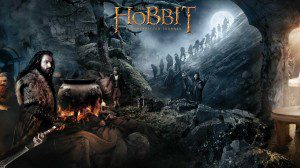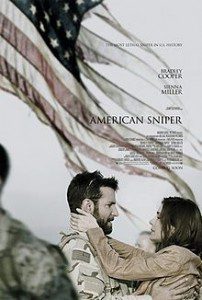 Really appreciated this Huffington Post piece by a poet named Seth Abramson. Abramson gives very helpful backstory to The Hobbit, which as some know has taken a bit of a critical pounding of late, and shows that there is actually a good deal more history to the matters covered in and around The Hobbit then originally meets the eye. Making three movies from the book, while tricky, is not necessarily only a money-grab.
Really appreciated this Huffington Post piece by a poet named Seth Abramson. Abramson gives very helpful backstory to The Hobbit, which as some know has taken a bit of a critical pounding of late, and shows that there is actually a good deal more history to the matters covered in and around The Hobbit then originally meets the eye. Making three movies from the book, while tricky, is not necessarily only a money-grab.
Here’s what Abramson has to say on the subject. The whole piece is worth reading if you like the film and Tolkien’s work:
What’s odd about the naysayers is not their opinions–movie-reviewing, like movie-making, is an artform rife with necessary subjectivities–but how they’ve gone about substantiating them. If there’s one biographical fact avid moviegoers have considered sacrosanct these past few years, it’s that Peter Jackson was and is a nerd-king of historic dimensions whose genuine love for all things Tolkien was and is the animating principle behind the Lord of the Rings trilogy and its now-three-part Hobbit companion. Not so, say those scions of the movie-reviewing circuit who’ve heaped calumny upon The Hobbit; in fact, Jackson’s decision to bloat the 310-page children’s book into a trilogy on par, in length and cinematic scope, to Tolkien’s 1,500-page (in manuscript form, 9,250-page) Lord of the Rings trilogy was entirely a “mercenary” one, according to CNN.
What these critics don’t know, and what Jackson most certainly does, is the history of The Hobbit as a text, and of Middle Earth as a holistic construction. While knowledge of the literature behind the film doesn’t necessarily imbue the film with automatic cinematic bona fides, it does suggest that, in the long run, critics of The Hobbit will be made to feel rather foolish for their circumspection and (in many instances) their open hostility toward both Jackson and his creation. If there’s a reason most critics panning the film don’t also encourage moviegoers to avoid it, it’s likely that they sense–as they ought to–that future generations will view the effort considerably more kindly, and that therefore The Hobbit is worth seeing now, whatever its infelicities.
If you’re considering whether or not to see the film, I would strongly encourage you to go see it. It’s not perfect, it’s younger than the LOTR trilogy, but it’s also a powerful cinematic experience and full of good things. It celebrates heroism, fighting evil sacrificially, the old ways, courage, the underdog, supernatural power exercised for the good of humanity, and much more. It’s very fun, and very cool. Don’t believe the snarky critics (on this or other films). They so often celebrate evil, murkiness, deconstruction of good things. Meanwhile, hope, virtue, moral excellence, purity, and truth are considered outmoded. Phooey.
Nothing, in my view, can top The Fellowship of the Ring, the first movie of the original trilogy. The way that Jackson smashes whimsy and horror together is nothing less than masterful. The first two hours are just stunning and in my opinion rival any film I can think of in terms of drama and suspense.
What do you think? What is the best LOTR movie? Did you like the Hobbit? What are your favorite themes from the films?











